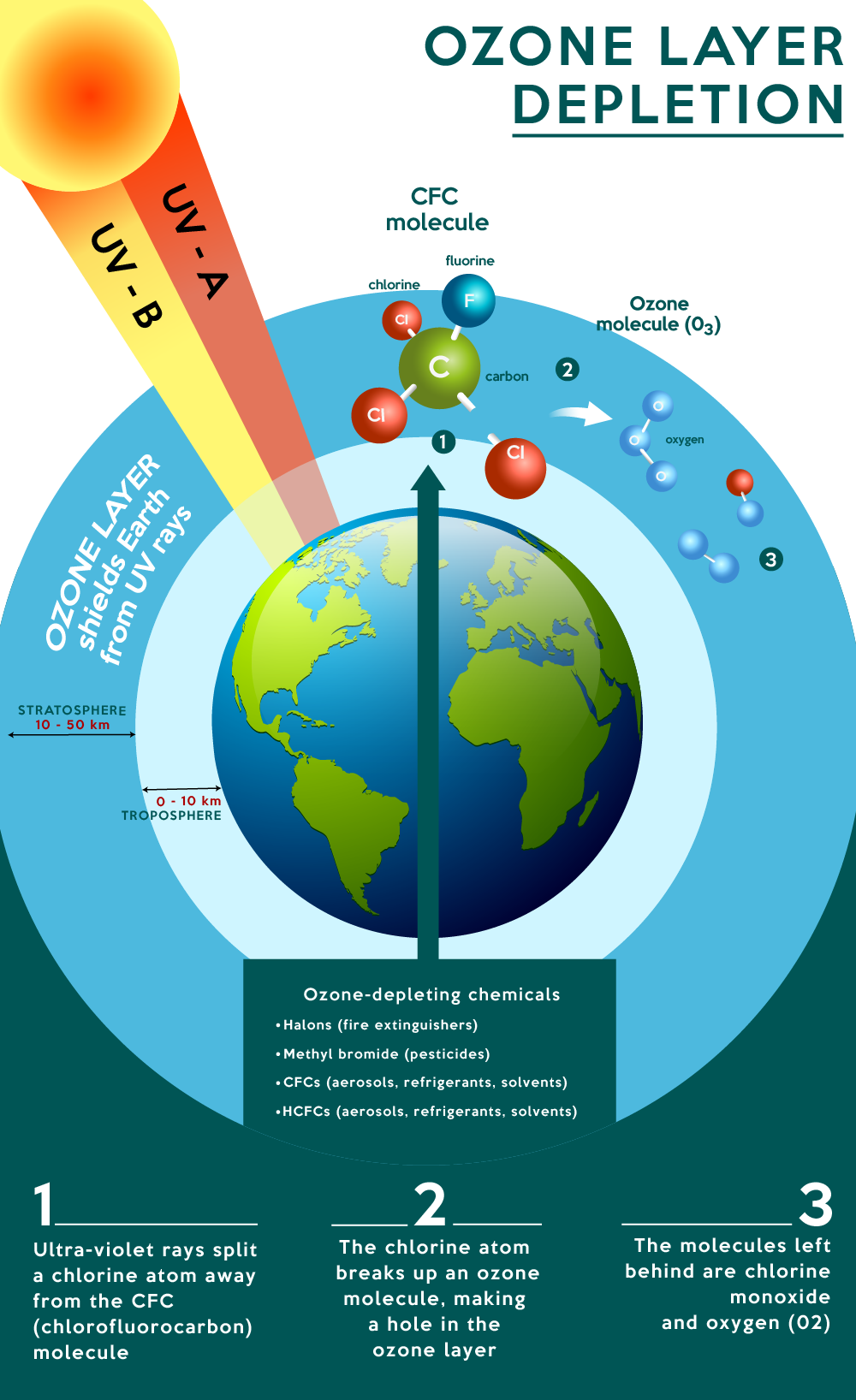16 September – International Day for the Conservation of the Ozone Layer
United Nations
The ozone layer plays a key function in protecting humans from the sun’s ultraviolet (UV) rays. The ozone layer has suffered damage through the years due to a group of manufactured chemicals, containing chlorine and/or bromine. These chemicals are called “ozone-depleting substances” (ODS). Ozone layer depletion increases the amount of UV irradiation that reach the Earth’s surface; this can increase the risk of skin cancer, particularly at higher latitudes, and affect the development of plants and marine ecosystems. ODS are stable, non-toxic and environmentally safe in the lower atmosphere, which is why they became so popular in the first place. Efforts such as the 1987 Montreal Protocol have helped reduce damage to the ozone layer through the control of ODS, however, many of these substances are still being used. In the future, environmental efforts and social demands to preserve the ozone layer will drive sustainable business forward.
ODS include compounds such as chlorofluorocarbons (CFCs) and halons, which rise in the air, reach the stratosphere, and destroy the ozone molecules through a series of chemical reactions. The rate at which this depletion is happening is faster at the poles. The ozone layer in the polar regions has been depleted by 33% compared to what it was in the 1970s. However, the greatest losses in the ozone layer have occurred over Antarctica. In the mid-1980’s, researchers identified a massive hole in the upper ozone layer over Antarctica, while new research has now revealed it is starting to thin in the lower stratosphere over the non-polar areas.

Source: Agence France-Presse
Commercial agriculture is one of the major industries linked to the depletion of the ozone layer through toxic pesticides and fertilizers, which release harmful chemical particles into the atmosphere. Many commercial pesticides contain substances such as CFCs, HCFCs and Methyl Bromide. Depleting substances are likely to be phased out in the future as the sustainable agricultural movement grows. Initiatives like the Montreal Protocol are expected to amount to around US$2.2 trillion, as a result of averted damages to agriculture, fisheries and materials by the year 2030.
To date, over 98% of ozone-depleting substances have been phased out globally. Without the treaty, the hole in the Antarctic ozone would have been 40% larger in 2013.
For the first time in history, social responsibility and sustainability initiatives are being driven by the people rather than governments. The appetite for sustainable solutions is higher than it has ever been before. Society is no longer prepared to allow the damaging and unsustainable practices that degrade our earth. We are instead opting for strategies that maximize all forms of capital across social, environmental and financial frameworks in order to ensure a safe and lucrative future for all of mankind.
At Primal Group our objective is to transform the archaic system of modern industrial agriculture into one that guarantees that nutritional needs are met in a safe, healthy and sustainable way. We believe in doing good for the world, by doing good business. That involves delivering positive returns for our investors while maximizing all forms of capital across our human, natural and financial spheres of influence.